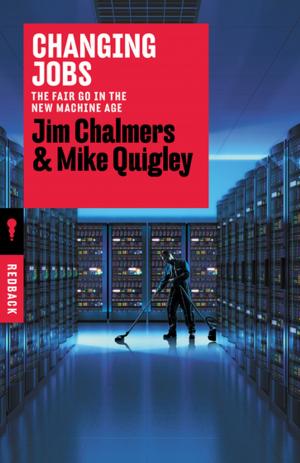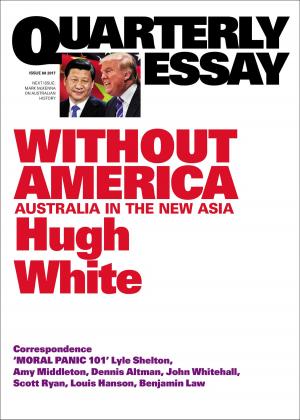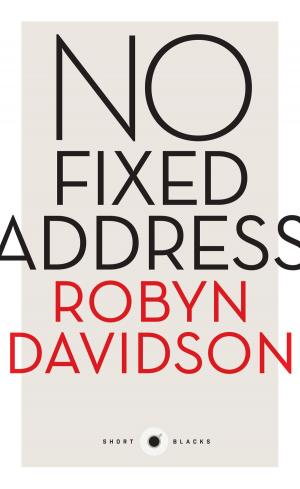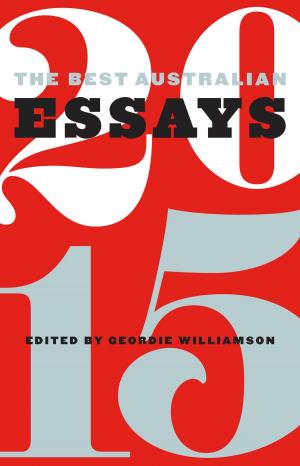Wrong Way
How Privatisation and Economic Reform Backfired
Nonfiction, Social & Cultural Studies, Political Science, International, Business & Finance| Author: | Damien Cahill, Phillip Toner | ISBN: | 9781743820605 |
| Publisher: | Schwartz Publishing Pty. Ltd | Publication: | September 3, 2018 |
| Imprint: | La Trobe University Press | Language: | English |
| Author: | Damien Cahill, Phillip Toner |
| ISBN: | 9781743820605 |
| Publisher: | Schwartz Publishing Pty. Ltd |
| Publication: | September 3, 2018 |
| Imprint: | La Trobe University Press |
| Language: | English |
Since the 1980s, waves of neoliberal ‘economic reform’ have transformed Australia.
Privatisation, deregulation, marketisation and the contracting out of government services: for three decades now, there has been widespread agreement among policymakers on the desirability of these strategies. But the benefits of economic reform are increasingly being questioned. Alongside growing voter disenchantment, new voices of dissent argue that instead of efficiency and improved services, economic reform has led to unaccountable oligopolies, increased prices, reduced productivity and degradation of the public good.
In Wrong Way, Australia’s leading economists and public intellectuals do a cost–benefit analysis of economic reform across key areas. Have these reforms been worthwhile for the Australian community and its economy? Have they given us a better society, as promised?
‘Has privatisation led to more productivity-enhancing competition? Has deregulation increased economic welfare in energy, finance, health, education and labour markets? Does the lived experience of Australians measure up to the promise of economic reform? The authors answer these questions with conclusions that are both compelling and disturbing.’——Emeritus professor Roy Green, University of Technology Sydney
- Damien Cahill & Phillip Toner on Economic Reform
- Stephen Duckett on Private Health Insurance
- Elizabeth Hill & Matt Wade on Early Childhood Education And Care
- Phillip Toner on Vocational Education And Training
- Jane Andrew & Max Baker on Prisons
- Bob Davidson on Aged Care
- Paul Davies on Public Sector Engineering
- Sue Olney & Wilma Gallet on Employment Services
- John Quiggin on Electricity
- Jim Stanford on Labour Markets
- Evan Jones on Banking
- Peter Phibbs & Nicole Gurran on Housing
- Lee Ridge on The NBN
- Ben Spies-Butcher & Gareth Bryant on Universities
- Michael Beggs on Monetary Policy And Unemployment
- John Quiggin on Productivity
- Peter Brain on Orthodox Economic Models
- Patricia Ranald on Free Trade
- David Richardson on Foreign Investment
- Frank Stilwell on Inequality
Since the 1980s, waves of neoliberal ‘economic reform’ have transformed Australia.
Privatisation, deregulation, marketisation and the contracting out of government services: for three decades now, there has been widespread agreement among policymakers on the desirability of these strategies. But the benefits of economic reform are increasingly being questioned. Alongside growing voter disenchantment, new voices of dissent argue that instead of efficiency and improved services, economic reform has led to unaccountable oligopolies, increased prices, reduced productivity and degradation of the public good.
In Wrong Way, Australia’s leading economists and public intellectuals do a cost–benefit analysis of economic reform across key areas. Have these reforms been worthwhile for the Australian community and its economy? Have they given us a better society, as promised?
‘Has privatisation led to more productivity-enhancing competition? Has deregulation increased economic welfare in energy, finance, health, education and labour markets? Does the lived experience of Australians measure up to the promise of economic reform? The authors answer these questions with conclusions that are both compelling and disturbing.’——Emeritus professor Roy Green, University of Technology Sydney
- Damien Cahill & Phillip Toner on Economic Reform
- Stephen Duckett on Private Health Insurance
- Elizabeth Hill & Matt Wade on Early Childhood Education And Care
- Phillip Toner on Vocational Education And Training
- Jane Andrew & Max Baker on Prisons
- Bob Davidson on Aged Care
- Paul Davies on Public Sector Engineering
- Sue Olney & Wilma Gallet on Employment Services
- John Quiggin on Electricity
- Jim Stanford on Labour Markets
- Evan Jones on Banking
- Peter Phibbs & Nicole Gurran on Housing
- Lee Ridge on The NBN
- Ben Spies-Butcher & Gareth Bryant on Universities
- Michael Beggs on Monetary Policy And Unemployment
- John Quiggin on Productivity
- Peter Brain on Orthodox Economic Models
- Patricia Ranald on Free Trade
- David Richardson on Foreign Investment
- Frank Stilwell on Inequality















